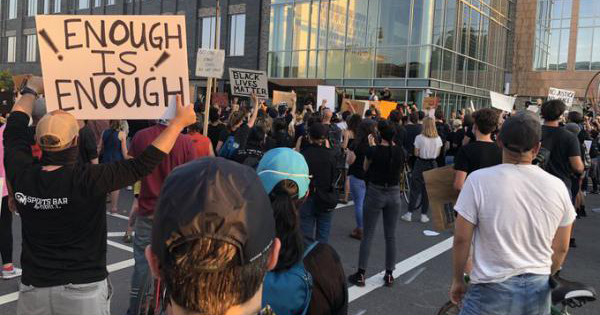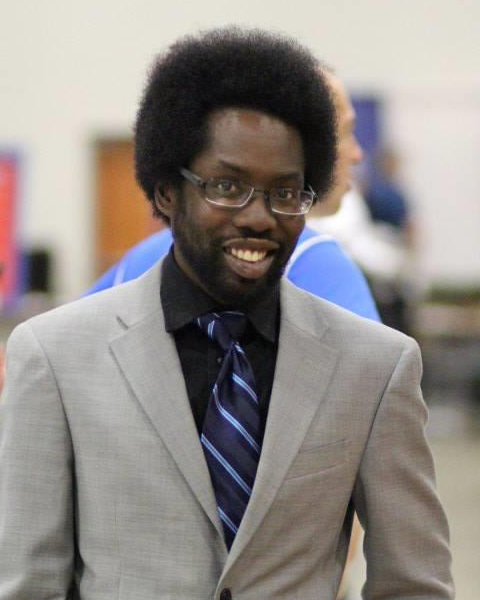To promote an understanding of history and context amongst other things, we are happy to provide an opportunity for Joe Pipkin, a friend from the Durham community, to share his perspective on Juneteenth.
Black communities all over the United States celebrate Juneteenth as the day that slavery was finally outlawed in America. Juneteenth, (a portmanteau of “June” and “Nineteenth” refers to June 19, 1865, the date of the reading of federal orders in Galveston, Texas, proclaiming all enslaved people in Texas to be free). While the emancipation proclamation had occurred a couple of years before, this day marked the official statutory end to chattel slavery and the right to legally own Black and Brown bodies.
2020 Has Been a Ride
When we discuss context the conversation becomes much more difficult, and indeed messy and often uncomfortable. The context is that right now in 2020 we are still confronting issues related directly to race or, more explicitly, the systemic issues of race that we have all internalized and accepted as parts of everyday life. I was initially reticent. I could spend pages writing about the incongruities of how “we” as people expect to be treated and how some of “us” are actually treated.
I could tell you the story of how six officers confronted me and a friend at gunpoint in a drug store my first semester of college and, after searching my ethnically ambiguous friend, asked me if I even went to school before deciding that an NYU student and a kid that got into The University of North Carolina at Chapel Hill (that was me) probably weren’t trying to steal the Gatorade, toothpaste, or hair grease. Heck, we can even laugh that the line the lead officer used, at gunpoint mind you, was “Sir, step away from the hair grease!”.
Yes, you can laugh; I do because it’s a daily fact of the life I live as a Black person in America. It’s not uncommon. Over the past few months, conversations have been numerous and frankly run a gamut of emotions from upsetting, confusing, unthinkable, and exhausting (yes, we are exhausted and I’ll come back to that later).

Credit Rusty Jacobs / WUNC
We have all seen the outrage, the protest, the outpouring and expression of the constant pain experienced by People of Color within our communities. We can discuss the most recent sources of anger, hurt, and pain. George Floyd, Trayvon Martin, Eric Garner, Philando Castile, Tamir Rice, Breonna Taylor, Michael Brown, and so many others. We can say their names but right now I think it’s important to note that if you have someone you know or someone you care about then their name is that name also.
I was talking to a friend the other day about the FIRST time we recalled being stopped by the police; I was 7 years old walking to the arcade to play Street Fighter II (yes kids that’s something we used to do), and he was 3 years old playing basketball in his own driveway. Neither of us even found these things to be uncommon.
I’ve left my house only to watch an officer drive by and just lightly took an over/under guess to myself that the cop would hit reverse and “slow roll” me to see what I was doing in my own neighborhood. Pro Tip: If you live in a nice neighborhood near a good college don’t drop your notes while rushing to class and always know the name of your landlord or rental company.
Bottom line, but by the grace of God go I and many others I can talk about, including an on-duty police detective with his badge on display that was stopped by a fellow officer and accused of impersonation.
The fact of the existent of pervasive and systemic really shouldn’t be in question. It is everywhere. The problem is that people don’t tend to see it or even want to see it.
Yesterday I was asked about the necessity of releasing Band-Aids in different skin tones. I explained that “flesh-colored” is not always peach. When I was a bartender, if I nicked myself with a knife cutting fruit and “flesh-colored” was my only option people noticed; and honestly, it occasionally affected my tips which impacted my ability to pay rent. Also, why shouldn’t people of color be able to have a boo-boo and expect to have a Band-Aid that doesn’t make them literally "stick out like a sore thumb." Are we not all equally clumsy at times y’all?
What Can You Do?
The question that was put to me by a dear friend and student activist: What actionable things do you think we can do and what steps should we take?
I think the most basic is speaking: if you see something then say something.
Yes, your friends of color are exhausted by the work of educating, elucidating, explaining how day-to-day things in life that you take for granted have negative effects on us.
Don’t let microaggressions slide.
Support your anti-racist friends who may still say racist things by enlightening them, and help them become better allies for change.
Support policy changes that benefit all communities; I promise you the cop that rolled up on a 3 year old playing basketball in the driveway could have been useful somewhere else.
Support penalizing people that call the police frivolously.
Support moving resources into mental health services, and social work.
Support better training and diversity in our police forces so that they don’t feel a need to “dominate” our communities when we need them to protect and serve.
Let's Carry Juneteenth Forward
At this point I’m sure you’re asking what does this have to do with Juneteenth?
In my opinion, it’s this: Juneteenth is a celebration of the last state in our great Union recognizing the end of the oppression of Black people in this country. It was two and a half years after the Emancipation Proclamation but it represented a time of joy for people.
Juneteenth is also, coincidentally, the time when America’s pastime of baseball was first played with modern rules, Black people couldn’t play in the same leagues but, thanks to Jackie Robinson's breaking of the "color barrier" in 1947, we can all agree that pastime brings us together and brings joy to our nation.
Let us carry on the Juneteenth tradition of bringing joy by not allowing the remnants of past hurt and anguish fester any longer. It took two and a half years to let the last of the slaves know that they were free. Let’s not take any more years to let our friends, our neighbors, our families, our community, and our nation know that it is truly free as well.

Joseph Pipkin
Originally from Pittsburgh, PA, Joe Pipkin came to North Carolina as a varsity fencer for the University of North Carolina at Chapel Hill. Following his coursework at UNC, Joe worked with athletes at all levels, domestically and internationally as a coach and a referee.
Joe has earned a bachelor's degree from UNC-CH in African and African American Studies. Joe also holds a Prévot de Sabre certification from the United States Fencing Coaches Association.

Add new comment